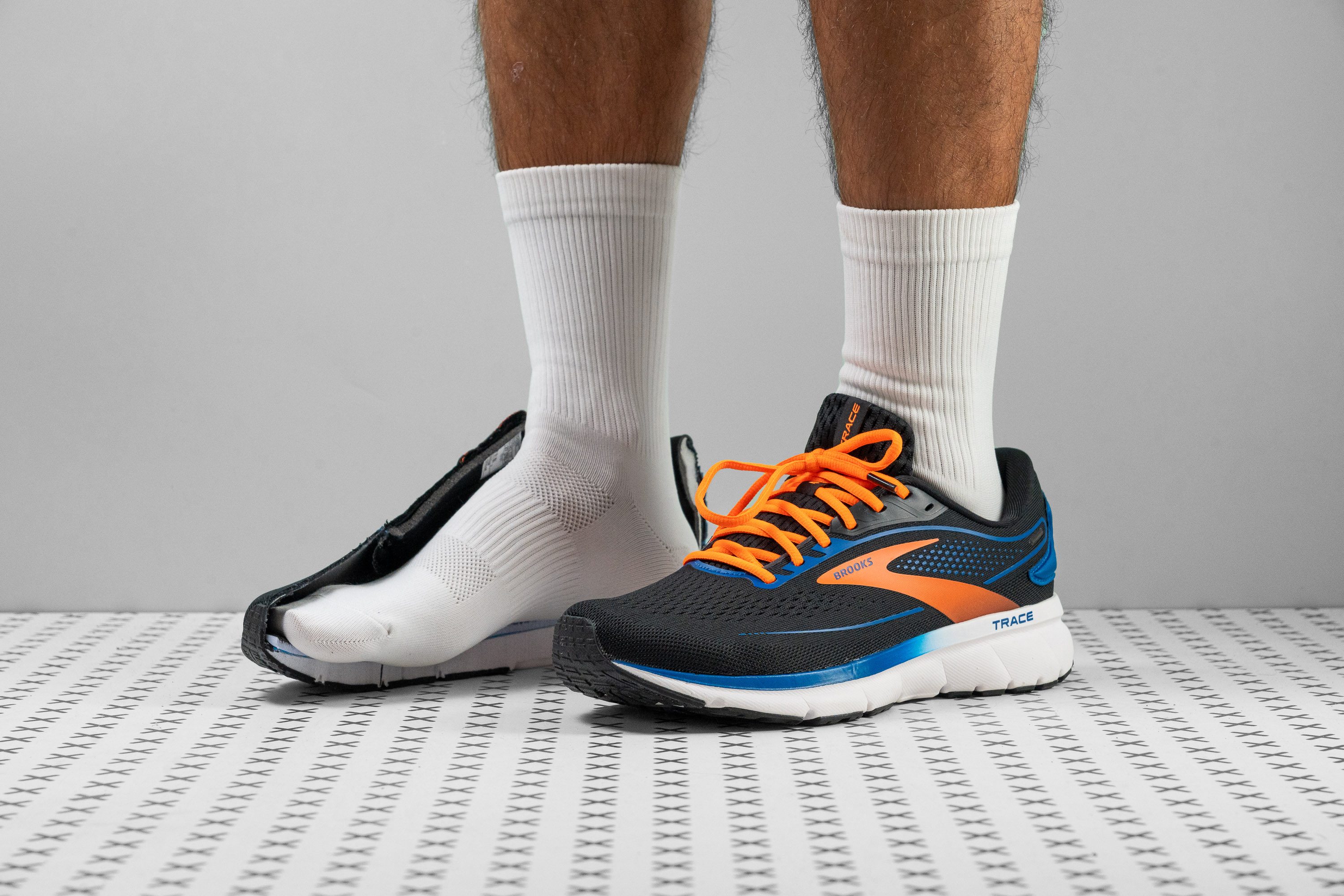Our verdict
Pros
- Outstanding value for just $100
- Comfortable BioMoGo DNA midsole
- Superior breathability
- Ideal for heel strikers
- Incredibly light
- Remarkably durable
- Performs well in all seasons
- Versatile enough for gym or walking use
Cons
- Inadequate cushioning for forefoot strikers
- Limited energy return
Audience verdict
Comparison
The most similar running shoes compared
+ + Add a shoe | |||||
|---|---|---|---|---|---|
| Audience score | 88 Great! | 77 Decent! | 76 Decent! | 81 Good! | |
| Price | £100 | £65 | £100 | £90 | |
| Pace | Daily running | Daily running | Daily running | Daily running | |
| Arch support | Neutral | Neutral | Neutral | Neutral | |
| Weight lab Weight brand | 8.8 oz / 249g 8.6 oz / 243g | 9.3 oz / 265g 9.4 oz / 267g | 9.1 oz / 257g 9 oz / 255g | 9.7 oz / 274g 10 oz / 283g | |
| Lightweight | ✓ | ✗ | ✗ | ✗ | |
| Drop lab Drop brand | 12.3 mm 12.0 mm | 10.1 mm 10.0 mm | 11.9 mm 12.0 mm | 12.5 mm 9.0 mm | |
| Strike pattern | Heel | Heel | Heel | Heel | |
| Size | True to size | Slightly small | True to size | True to size | |
| Midsole softness | Balanced | Balanced | Balanced | Balanced | |
| Difference in midsole softness in cold | Small | Small | Small | Small | |
| Toebox durability | Decent | Decent | Bad | Good | |
| Heel padding durability | Decent | Good | Good | Good | |
| Outsole durability | Good | Good | Good | Bad | |
| Breathability | Breathable | Moderate | Moderate | Breathable | |
| Width / fit | Narrow | Medium | Medium | Medium | |
| Toebox width | Medium | Medium | Medium | Medium | |
| Stiffness | Stiff | Moderate | Moderate | Stiff | |
| Torsional rigidity | Moderate | Moderate | Moderate | Moderate | |
| Heel counter stiffness | Moderate | Moderate | Stiff | Moderate | |
| Heel lab Heel brand | 34.2 mm | 32.2 mm 32.0 mm | 34.1 mm 34.0 mm | 30.7 mm 25.0 mm | |
| Forefoot lab Forefoot brand | 21.9 mm | 22.1 mm 22.0 mm | 22.2 mm 22.0 mm | 18.2 mm 16.0 mm | |
| Widths available | Normal | NarrowNormalWideX-Wide | NormalWide | Normal | |
| Orthotic friendly | ✓ | ✓ | ✓ | ✓ | |
| Season | SummerAll seasons | All seasons | All seasons | SummerAll seasons | |
| Removable insole | ✓ | ✓ | ✓ | ✓ | |
| Ranking | #240 Top 37% | #332 Bottom 10% | #342 Bottom 7% | #289 Bottom 21% | |
| Popularity | #451 Bottom 31% | #97 Top 27% | #153 Top 42% | #323 Bottom 12% |
Who should buy
We think that the Brooks Trace 2 is an excellent choice for:
- New runners looking for a reliable but affordable shoe to start their journey
- Brooks enthusiasts who desire a budget-friendly option for their daily runs
- Heel strikers seeking the best back for their buck in a running shoe
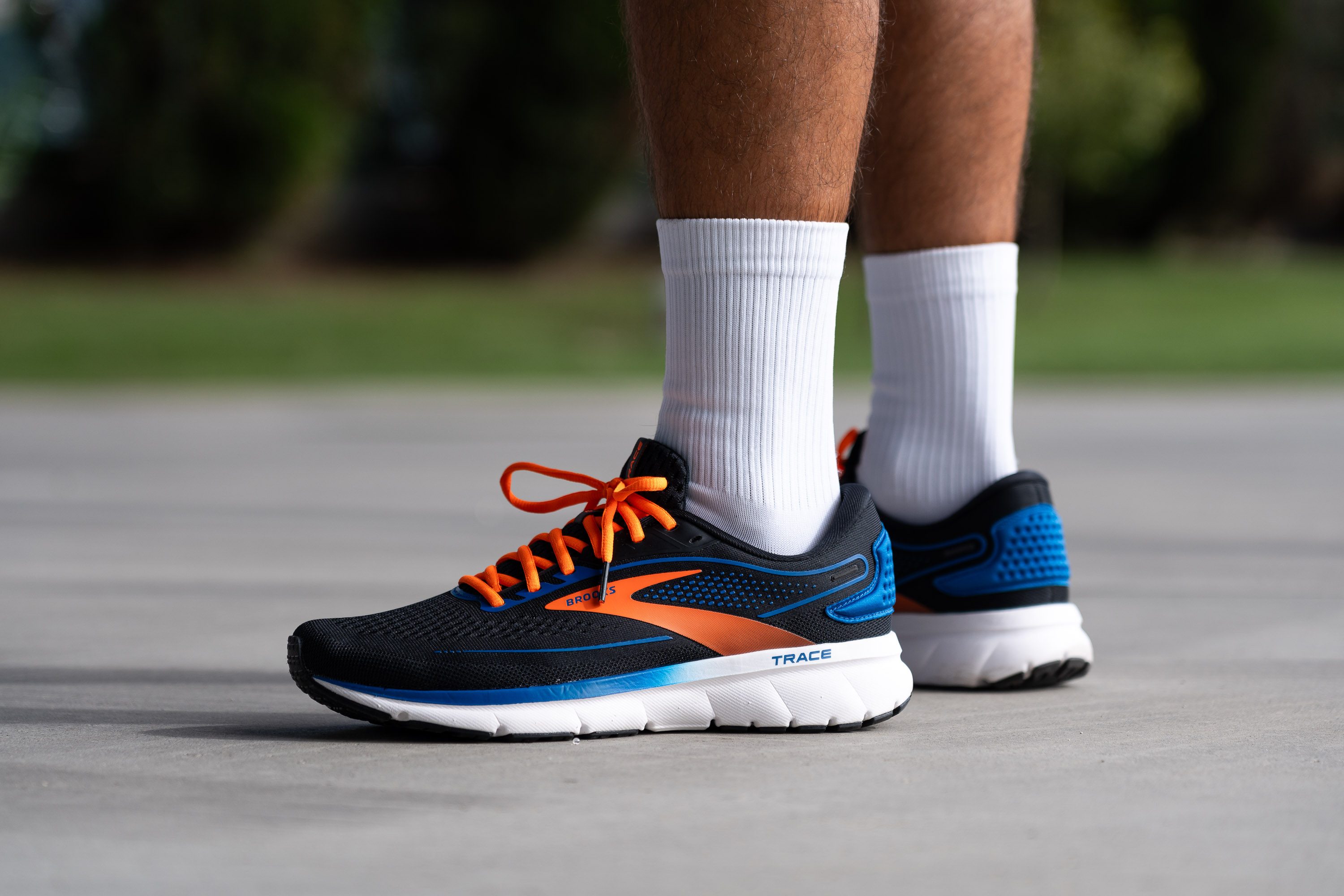
Who should NOT buy
If you're seeking a daily trainer with high energy return, this shoe won't be your best bet in our opinion. While it's a solid option, it does lack that extra bounce. For that, you'd need to look into options above £100, such as the ASICS Novablast 3 or the Brooks Ghost 15.
Also, runners with a forefoot striking technique should look elsewhere based on our lab tests. With a significant 12 mm heel-to-toe drop, this shoe is tailored for heel or midfoot strikers. Consider the Adidas Adizero SL as an interesting alternative.
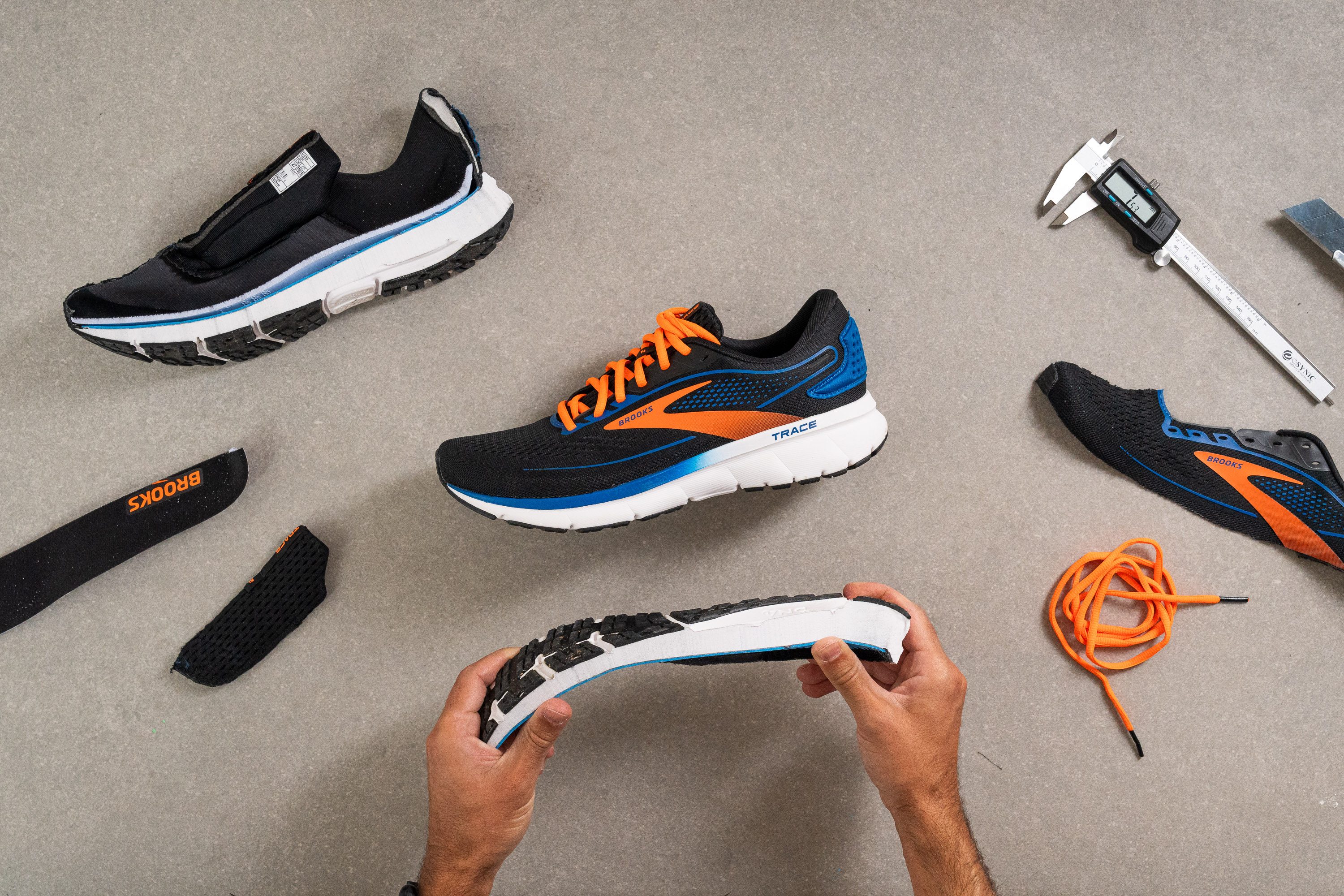
Cushioning
Heel stack
We measured the shoe's heel stack and found it to be a solid 34.2 mm. This provides plenty of cushioning for all heel strikers, even those who are on the heavier side.
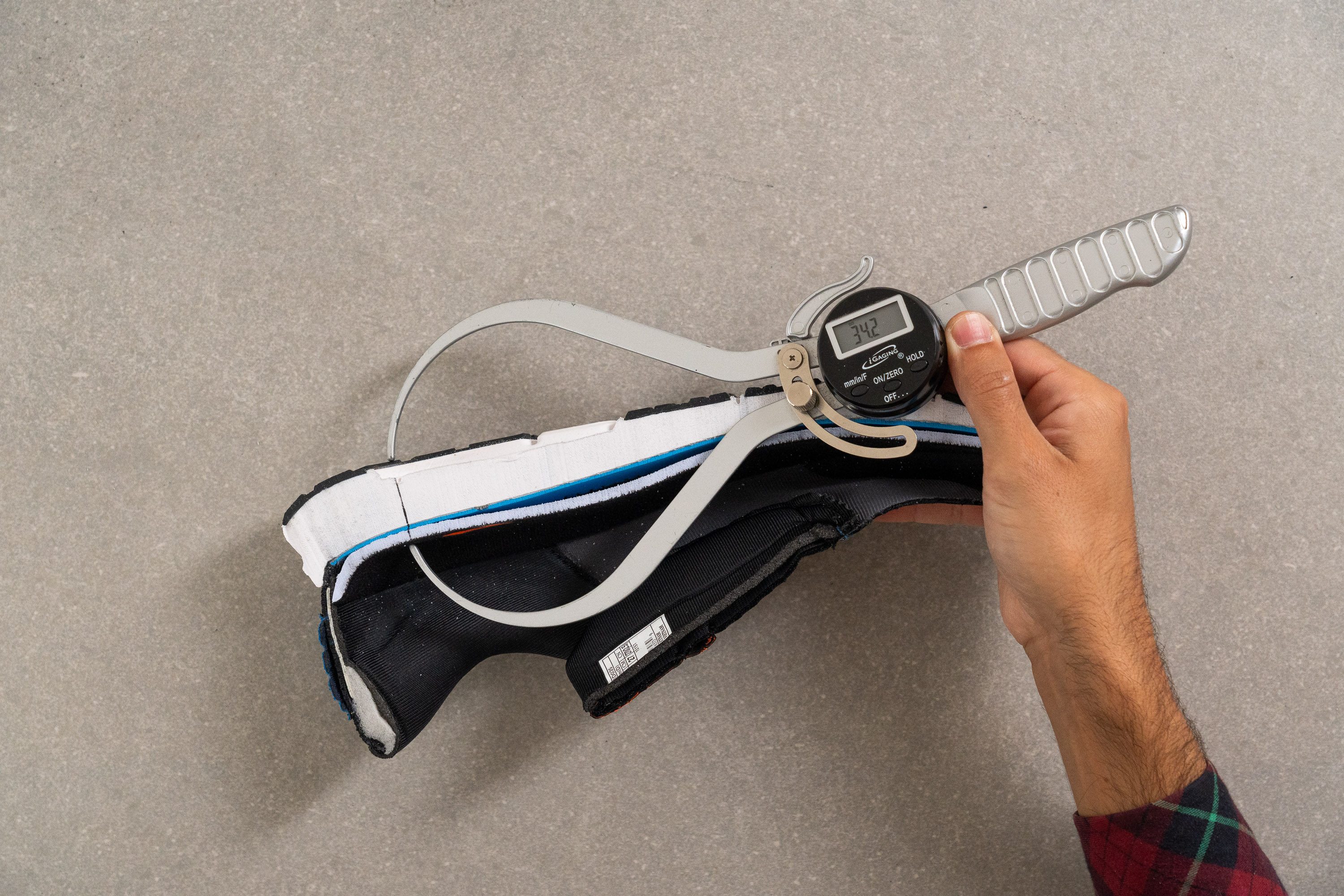
| Trace 2 | 34.2 mm |
| Average | 34.7 mm |
Forefoot stack
We then measured the thickness of the forefoot and found it to be just 21.9 mm. This is really thin, letting you feel the ground well.
If you're a forefoot striker, you might find the foam cushioning simply too low.
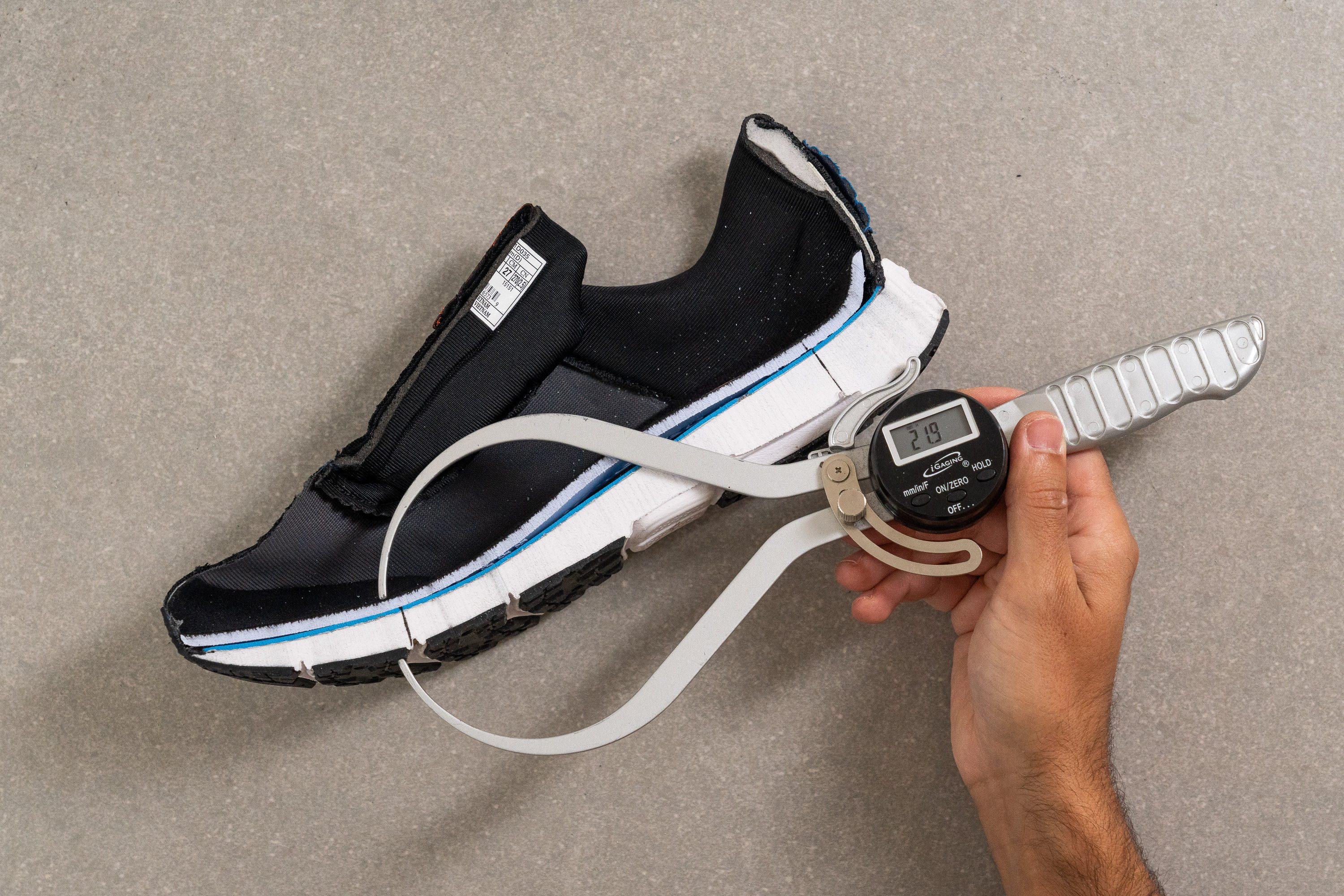
| Trace 2 | 21.9 mm |
| Average | 26.1 mm |
Drop
We discovered a gigantic heel-to-toe drop of 12.1 mm in this shoe. This clearly shows that the shoe is designed for heel strikers or for those looking to ease pressure on their Achilles and calves.
If you're a forefoot striker or have issues with your knees or hips, this shoe might not be the best fit for you.
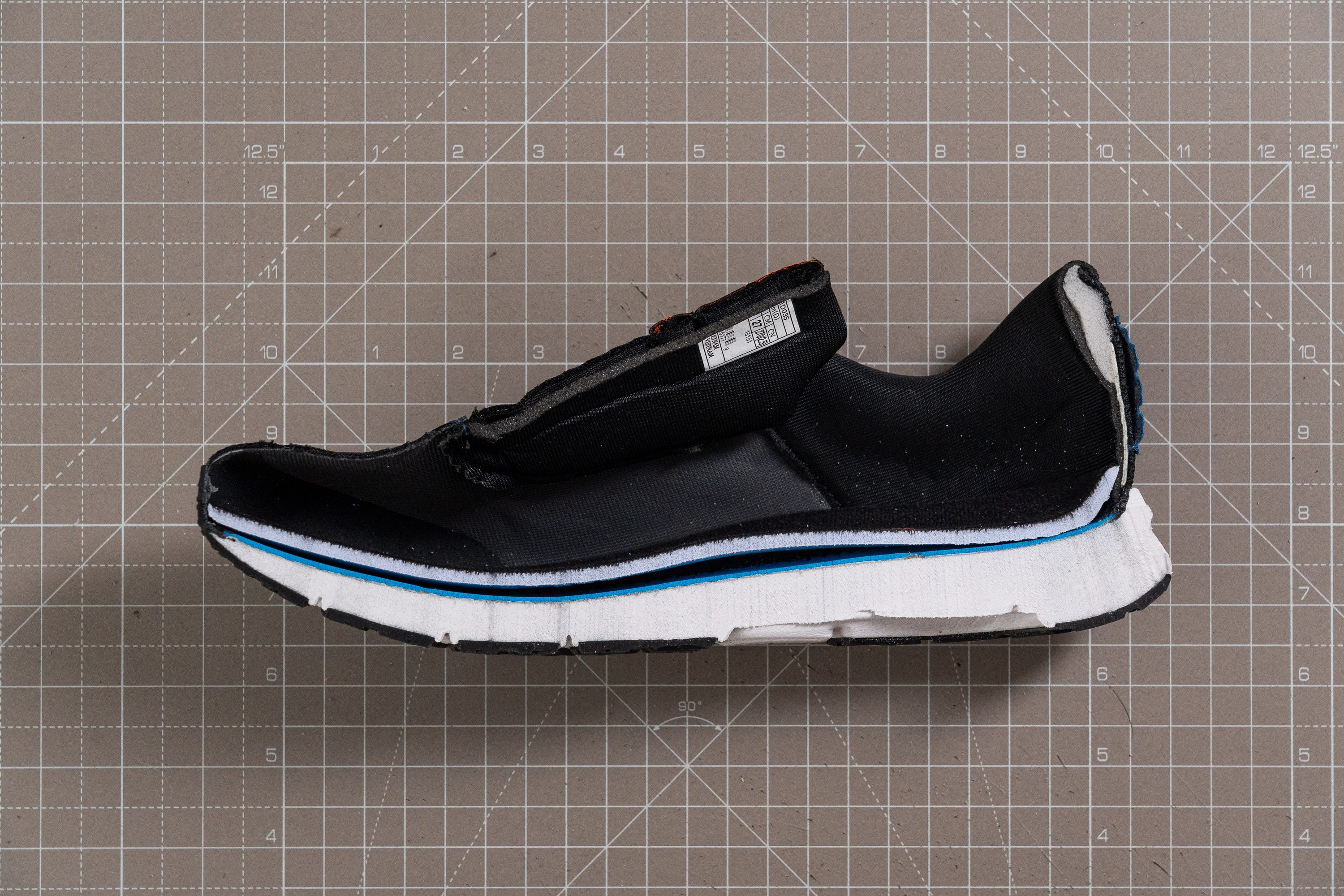
| Trace 2 | 12.3 mm |
| Average | 8.6 mm |
Midsole softness
The BioMoGo DNA midsole fits right in with what we expect from Brooks foams. It offers a snappy, responsive feel rather than a cloud-like cushion. However, it lacks energy return.
The durometer delivered a 22.1 HA reading. So, it's definitely not for those who are looking for pillow-soft running shoes, better check the New Balance FuelCell Rebel v3 instead.
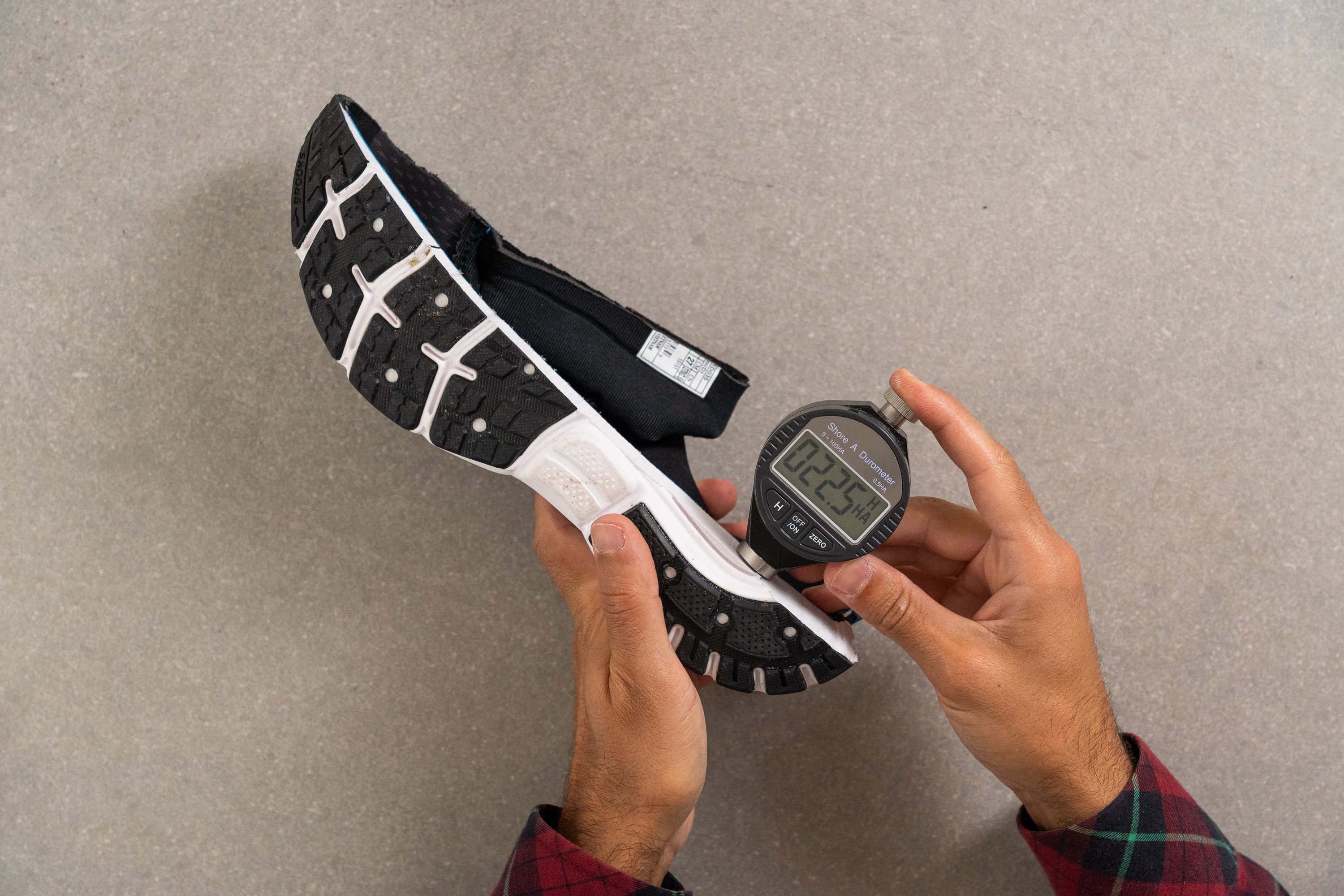
| Trace 2 | 22.1 HA |
| Average | 20.4 HA |
Size and fit
Size
Brooks Trace 2 fits true to size (613 votes).
Width / Fit
We analysed the toebox in the lab and found it to be 96.3 mm, which is pretty average but leans a bit on the snug side. However, it's not a big deal.
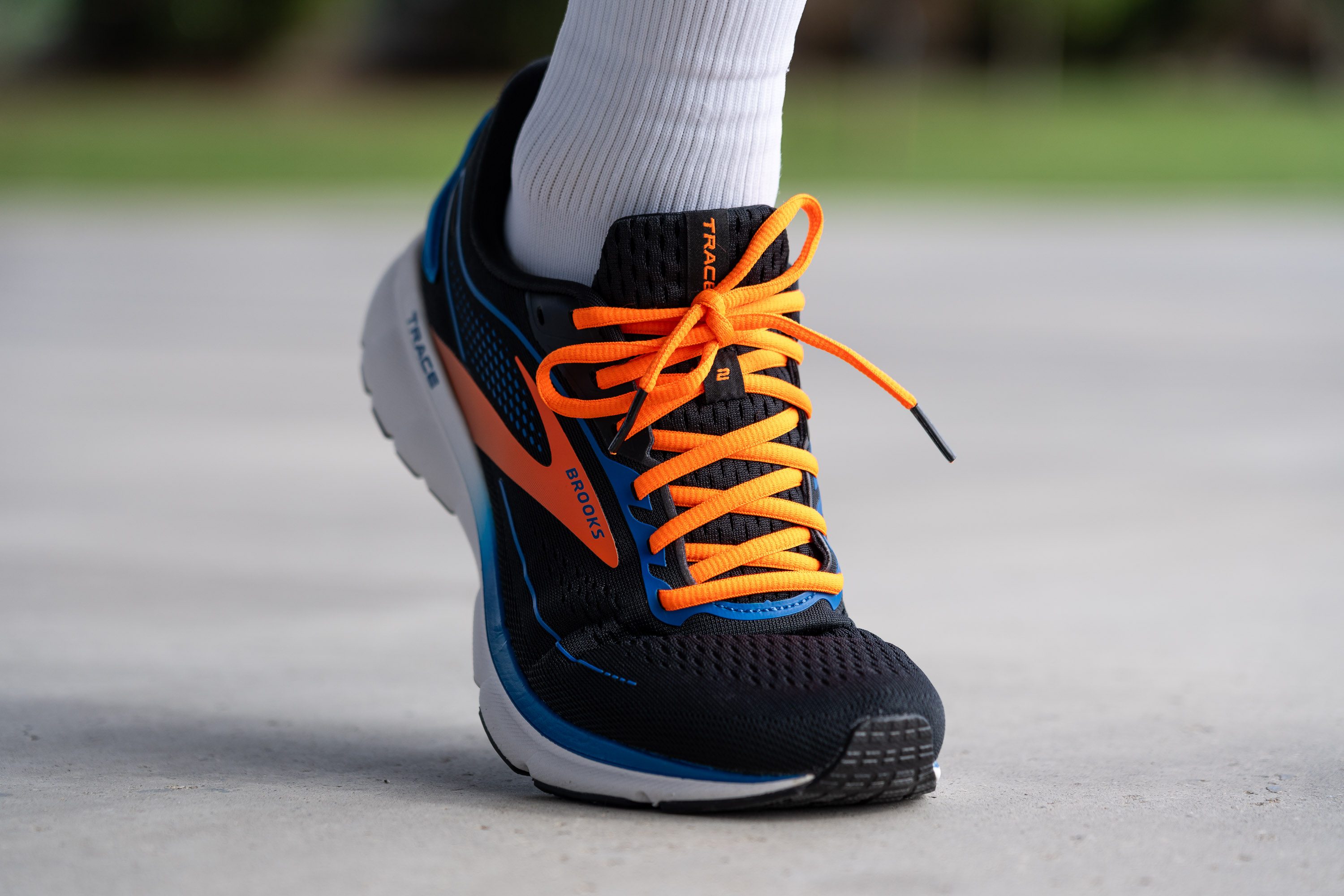
If you have wide feet, you might think about getting a wider size. Good thing Brooks offers this shoe in both D and 2E widths in some markets.
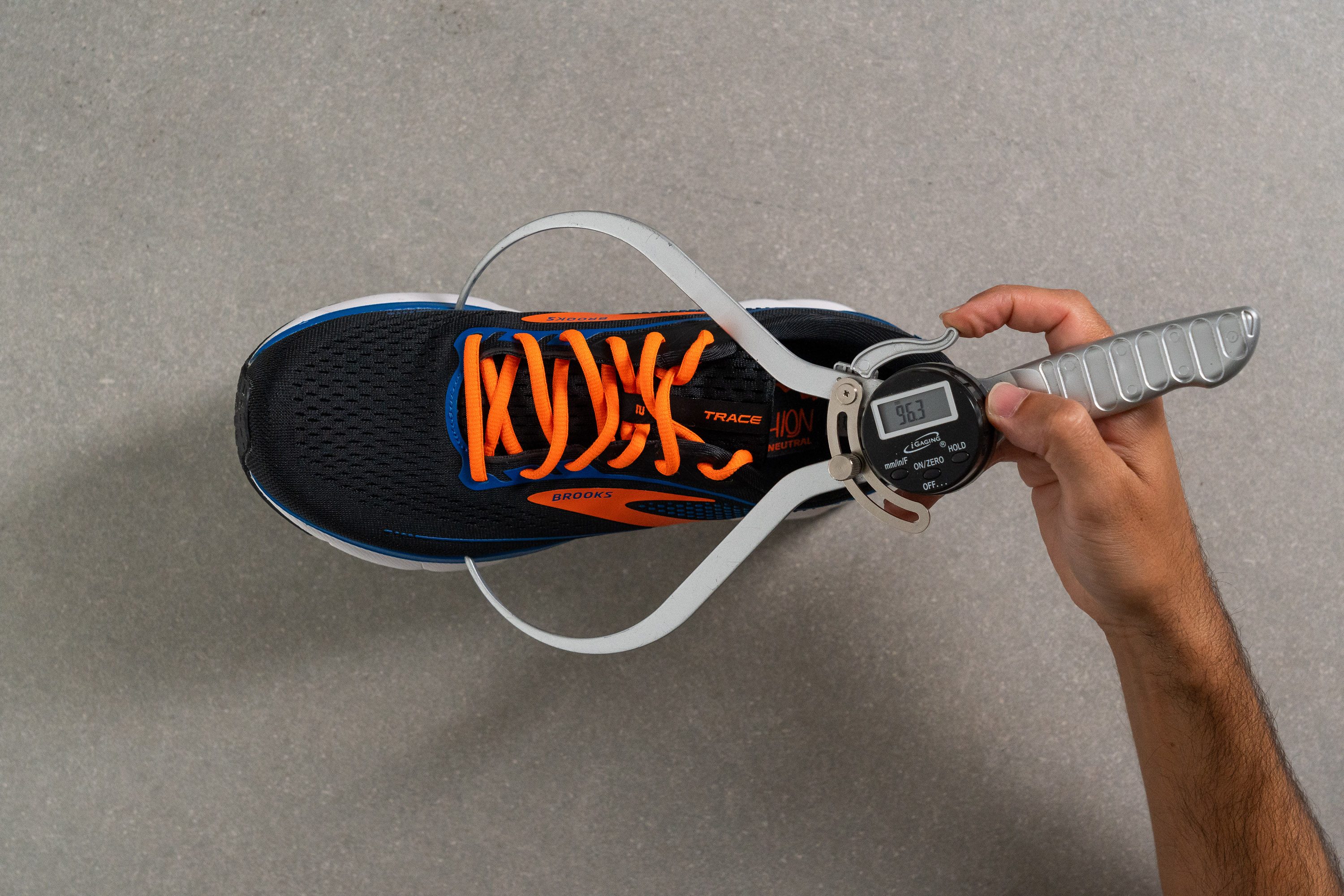
This test follows an older methodology, which is why you don't see recently tested shoes in the chart. Results from different methodologies can not be compared.
| Trace 2 | 96.3 mm |
| Average | 98.5 mm |
Toebox width
The big toe area is a bit narrower at 76.0 mm compared to a regular daily trainer. But there's no need to worry for most runners, mainly because the engineered mesh is really flexible.

This test follows an older methodology, which is why you don't see recently tested shoes in the chart. Results from different methodologies can not be compared.
| Trace 2 | 76.0 mm |
| Average | 78.4 mm |
Flexibility / Stiffness
Most runners looking for a budget-friendly shoe want it to be good for running but also versatile enough for gym workouts or casual walks. With pricier shoes, the focus is usually just on running.
At £100, the Trace 2 proved to be great for various activities in our lab. We found that part of its versatility comes from its flexibility. It took us just only 20.7N of force to bend the shoe 90 degrees, which is a really low measurement.
This test follows an older methodology, which is why you don't see recently tested shoes in the chart. Results from different methodologies can not be compared.
| Trace 2 | 20.7N |
| Average | 28.1N |
Stiffness in cold (%)
After spending another 20 minutes in the lab, we ran the same test again. This time, we measured a slightly higher force—just 23.3N. Interestingly, that's still way less than half the average force usually measured in this test.
We found that the difference is just 12.7%, which is actually closer to what you'd expect from high-end shoes rather than a budget-friendly pair. And it's less than three times the average result, which is seriously amazing.
| Trace 2 | 13% |
| Average | 33% |
Weight
Brooks is really working hard to make their shoes light, and they're using that to help sell them.
We found that this shoe is no exception. Tipping the scales at just 8.8 oz or 249g, it's incredibly light!
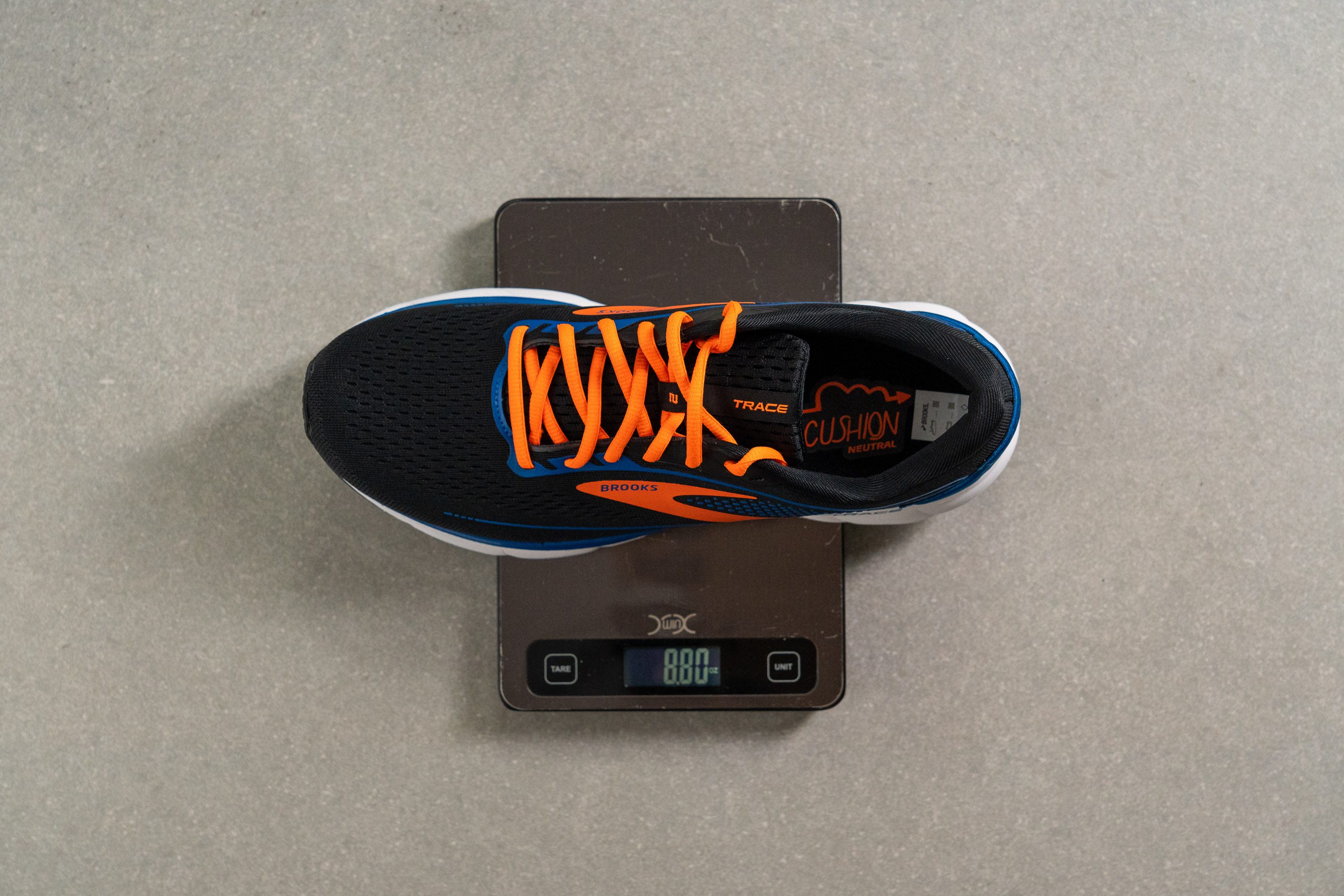
| Trace 2 | 8.8 oz (249g) |
| Average | 9.3 oz (264g) |
Breathability
Brooks is known for making breathable shoes, and the Trace 2 is no exception, even though it's a budget-friendly option. We were pleasantly surprised when this shoe earned a perfect 5/5 score for breathability.
In the video above, you can see how easily smoke escapes from multiple parts of the shoe. This is impressive because many shoes only offer good breathability in one part of the upper. But the Trace 2 excels all around.
Now, why is the breathability so good? We discovered that when we shined a powerful light on the upper, all the ventilation holes became visible in full glory.
These holes extend from the toe box to the midfoot, allowing for excellent airflow—a feature often missing in affordable shoes.
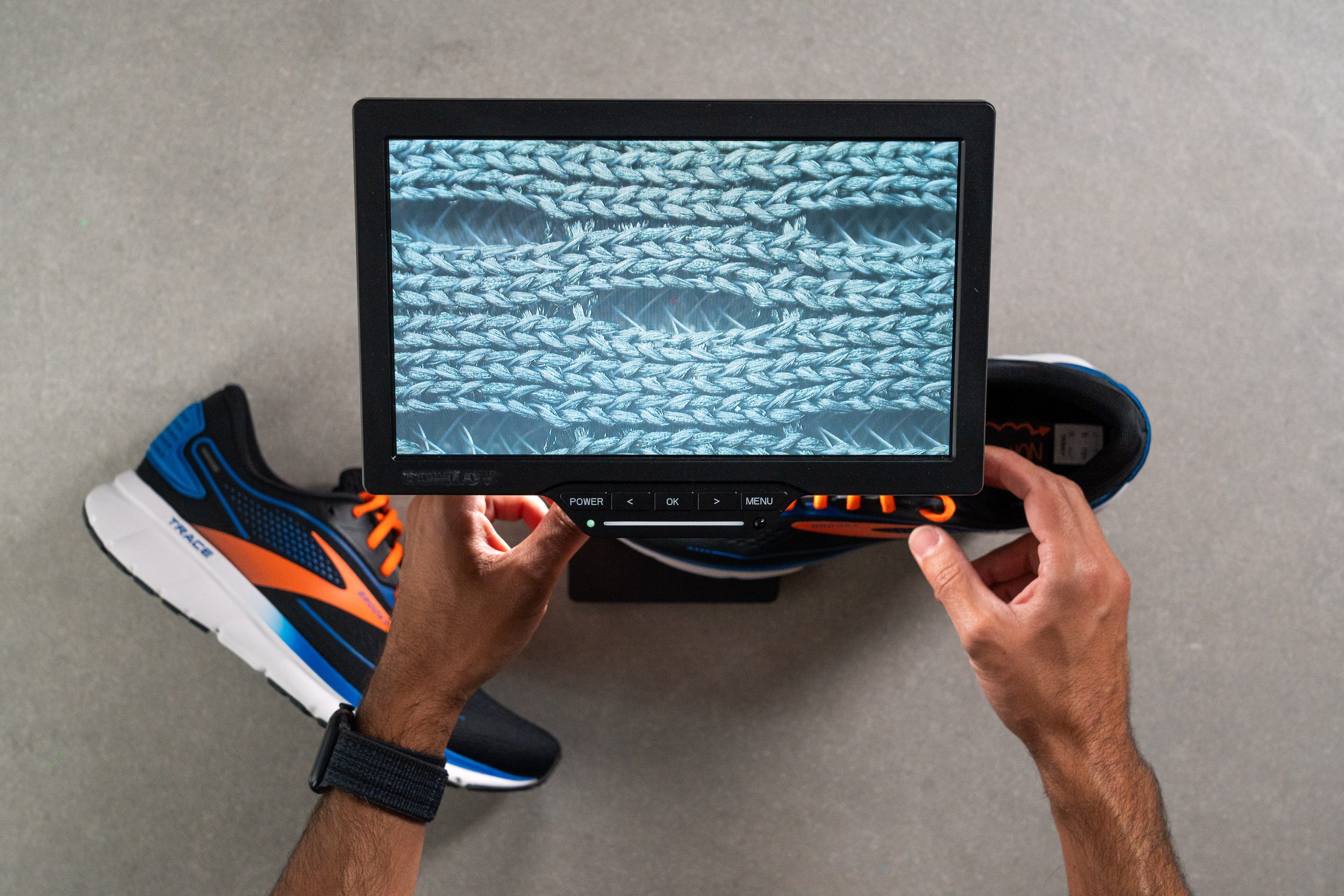
We also took a closer look under the microscope, as we often do in our lab.
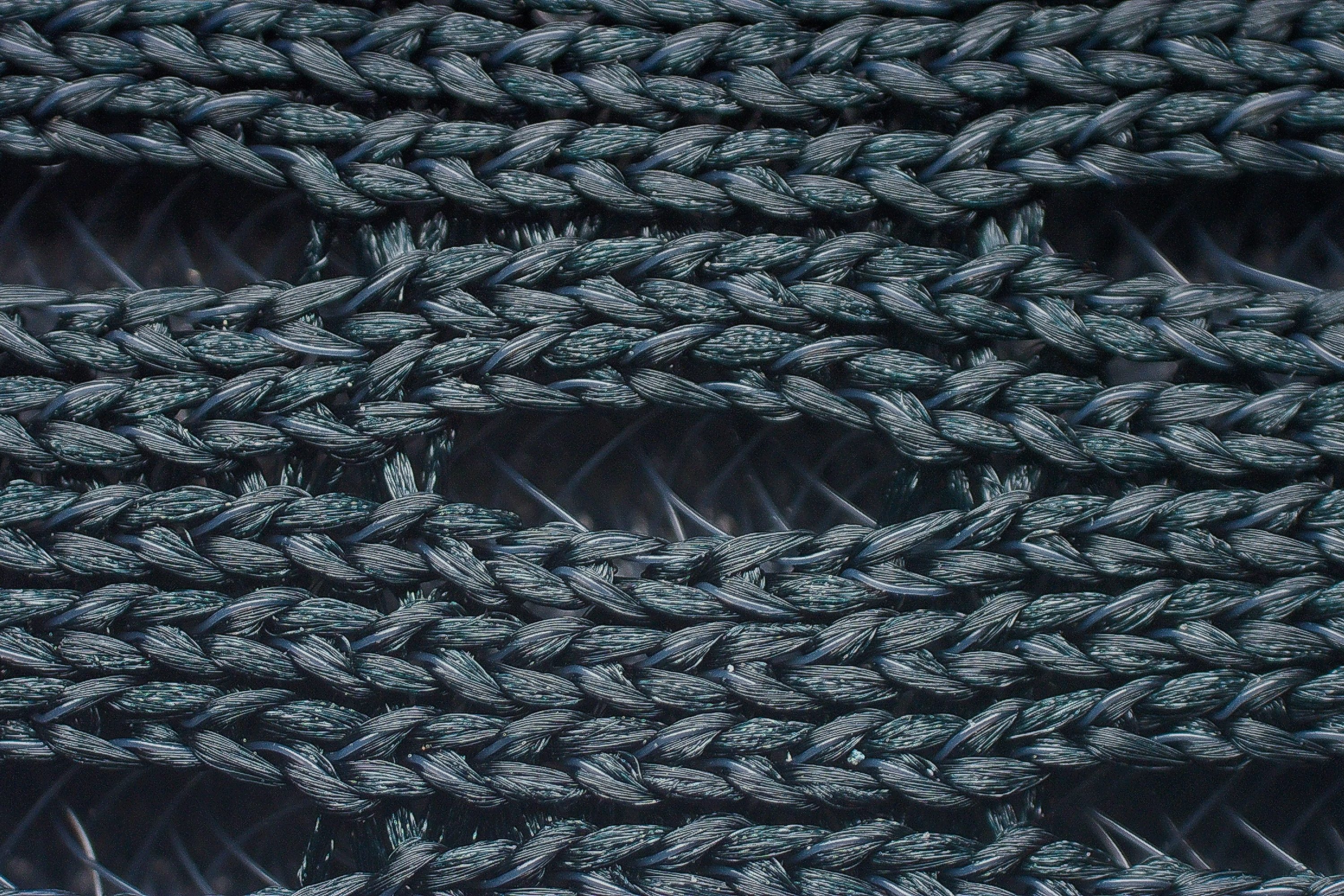
The engineered mesh upper not only looks great but also has an inner layer of fabric to boost comfort. This is probably why Brooks added more ventilation holes in comparison to shoes like the Hyperion Max that lack this layer, so they could still achieve perfect ventilation.
| Trace 2 | 5 |
| Average | 3.7 |
Stability
Lateral stability test
The Brooks Trace 2 is designed to be a neutral daily trainer. But we found that it also offers a good amount of stability. So, if you're a mild pronator, we think this shoe may work for you.
Torsional rigidity
When we bent and twisted the Trace 2 in our hands, and it didn't put up much of a fight. So, we gave it a 3 out of 5 on our scale for how stiff or bendy it is. This kind of flexibility is the safe bet for any brand that doesn't want to take risks.
| Trace 2 | 3 |
| Average | 3.5 |
Heel counter stiffness
The lead designer at Brooks chose a pretty average heel counter for this one. It's not too soft and not too stiff. We'd rate it a straightforward 3 out of 5, just like the torsional rigidity.
| Trace 2 | 3 |
| Average | 2.9 |
Midsole width - forefoot
Keeping up with the theme of creating a no-risk shoe, we measured the midsole width in the forefoot area and found it to be 113.6 mm. Again, no big shocker here, but that's not a bad thing at all!
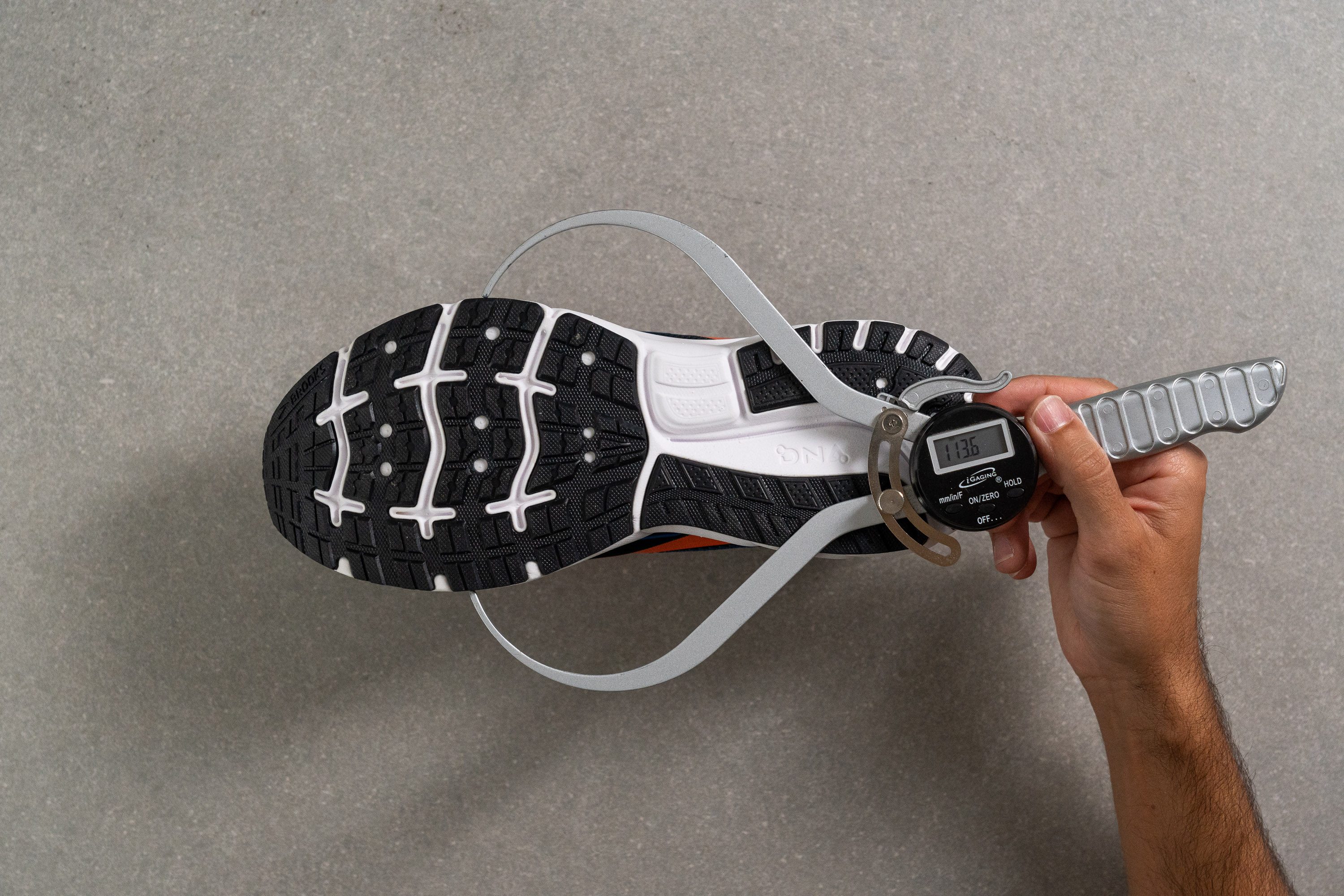
| Trace 2 | 113.6 mm |
| Average | 114.3 mm |
Midsole width - heel
The heel is wider than we anticipated, measuring in at 92.3 mm. It totally fits the bill because, as we've mentioned before, this shoe is specially designed for heel strikers.
So, a wider heel really adds that extra layer of stability in this key area.
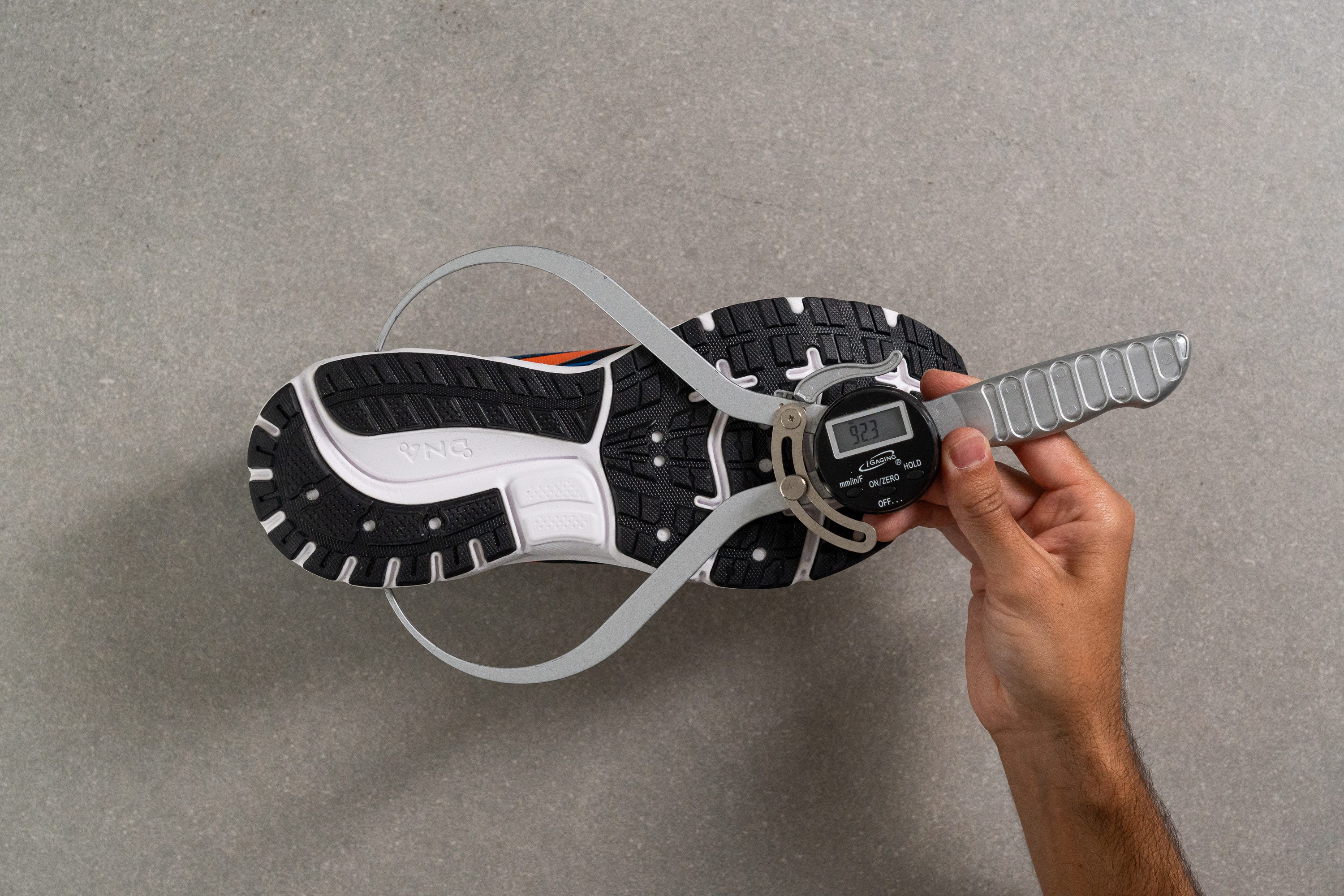
| Trace 2 | 92.3 mm |
| Average | 90.7 mm |
Durability
Toebox durability
With a generous number of ventilation holes, we expected the upper to perform poorly in our dremel test.
But, to our pleasant surprise, that wasn't the case at all! The 3D Fit Print engineered mesh stood up incredibly well against our testing tool. In fact, it outshone nearly every other running shoe on the market, earning a solid 3/5 score!

| Trace 2 | 3 |
| Average | 2.6 |
Heel padding durability
We were also genuinely impressed with the durability in the heel padding area.
It surpassed all our expectations at a 3/5 score. There's no worry about wear and tear in this area; it's built to last.
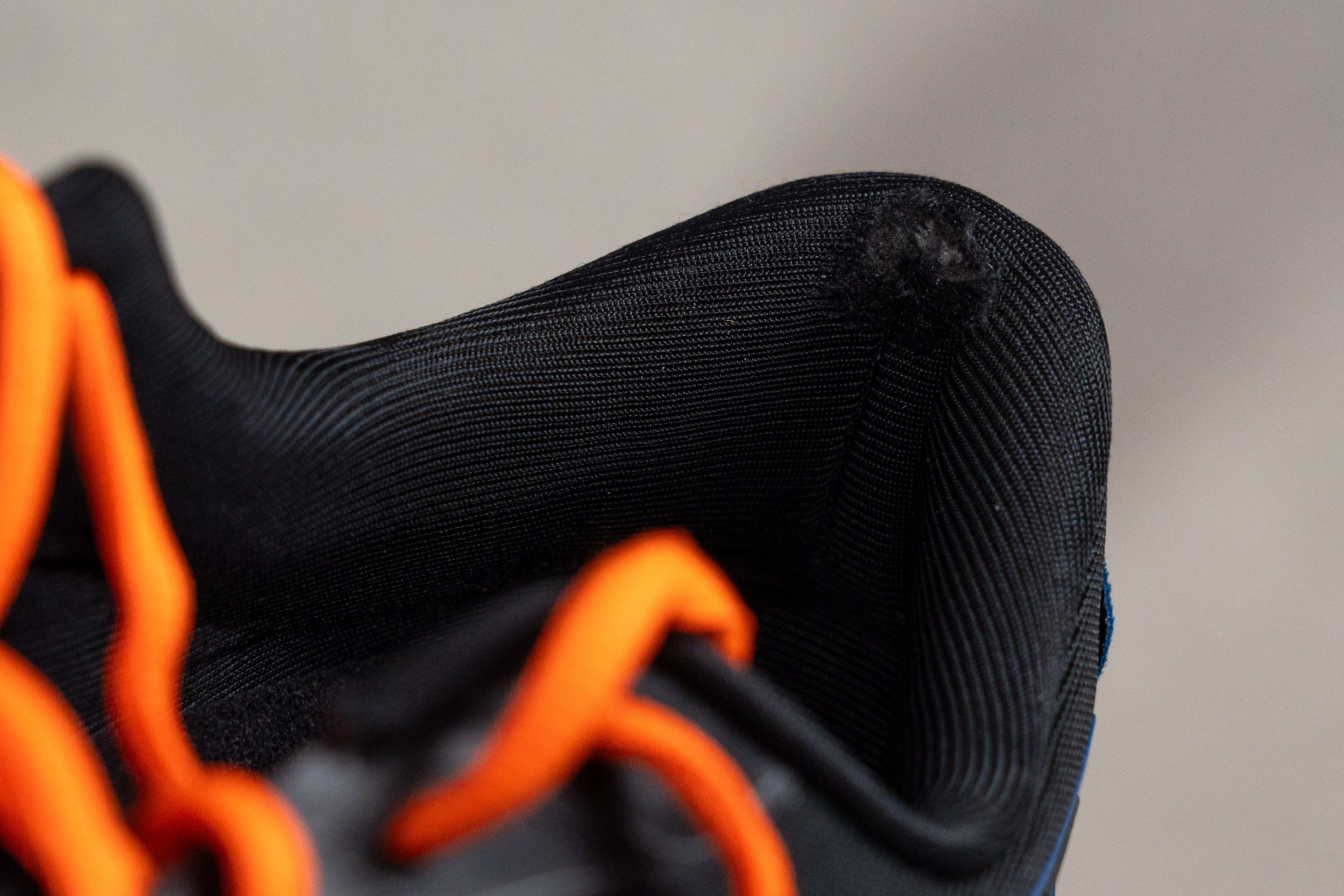
| Trace 2 | 3 |
| Average | 3.4 |
Outsole hardness
Next, we turned our attention to the outsole in our lab to further investigate the shoe's durability. We found that the type of rubber Brooks uses isn't overly hard at 79.8 HC.
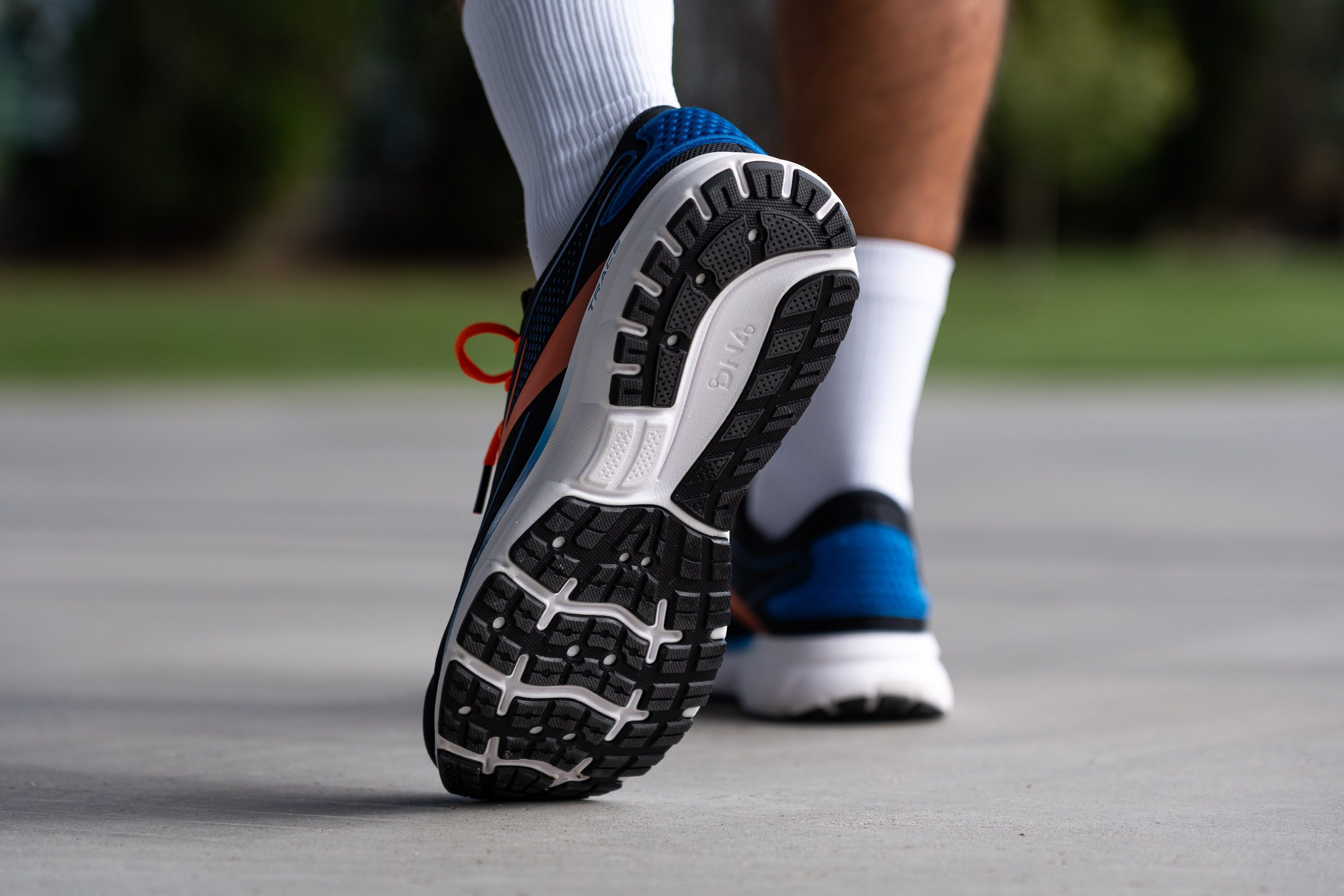
We observed that the outsole has some areas of exposed foam, but these are strategically placed. This suggests that they aim to strike a nice balance between providing solid grip, weight savings and enough durability.
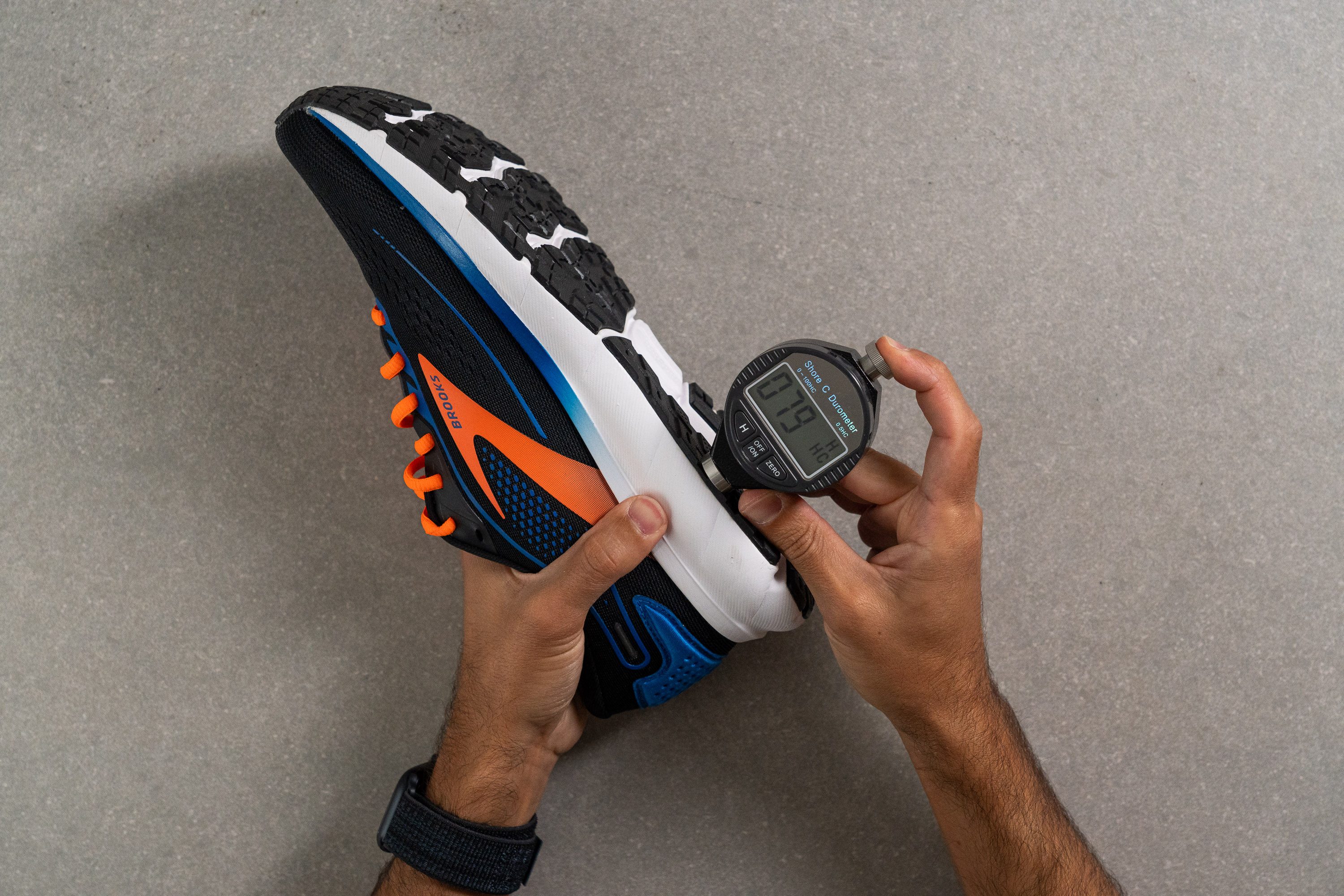
| Trace 2 | 79.8 HC |
| Average | 79.2 HC |
Outsole durability
After putting the outsole to the final test with our Dremel, we discovered a mere 0.4 mm indentation. This is a standout result that points to fantastic durability for the shoe.
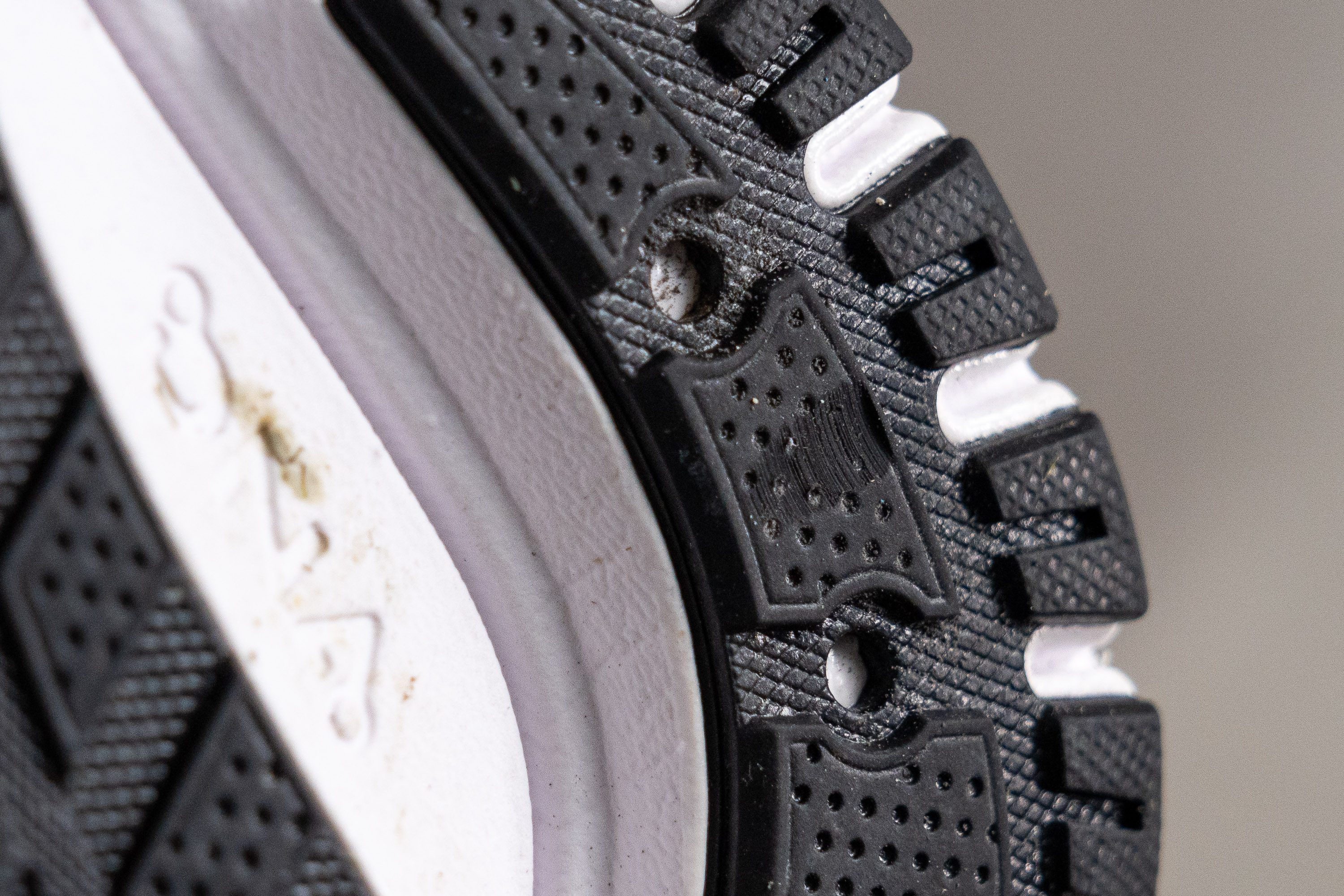
| Trace 2 | 0.4 mm |
| Average | 1.1 mm |
Outsole thickness
The outsole's thickness came in at 3.3 mm, which is pretty standard. This seems like a good compromise between weight and durability.
However, given how tough the rubber is in this shoe, we believe Brooks could have reduced the thickness even more to save even more weight!

| Trace 2 | 3.3 mm |
| Average | 3.2 mm |
Misc
Insole thickness
We measured the insole at 4.3 mm, which is pretty standard. There's nothing special to report about it. It's made of comfy foam, and should give you no issues at all.
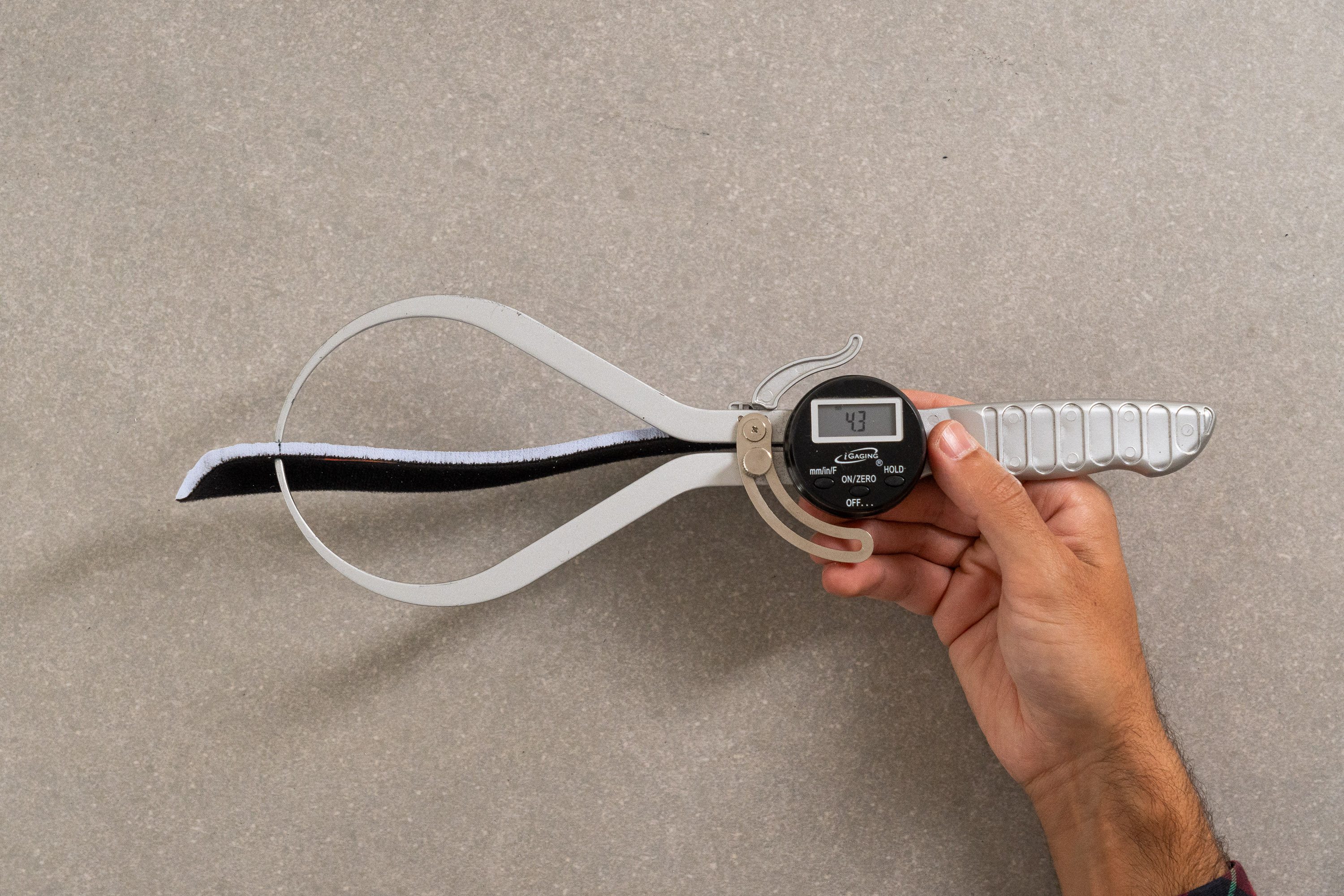
| Trace 2 | 4.3 mm |
| Average | 4.5 mm |
Removable insole
We found that the insole is removable, which is really convenient. This means you can easily swap it out for custom orthotics or even your favourite insole from another pair of shoes. So, you're not locked into just the default option.
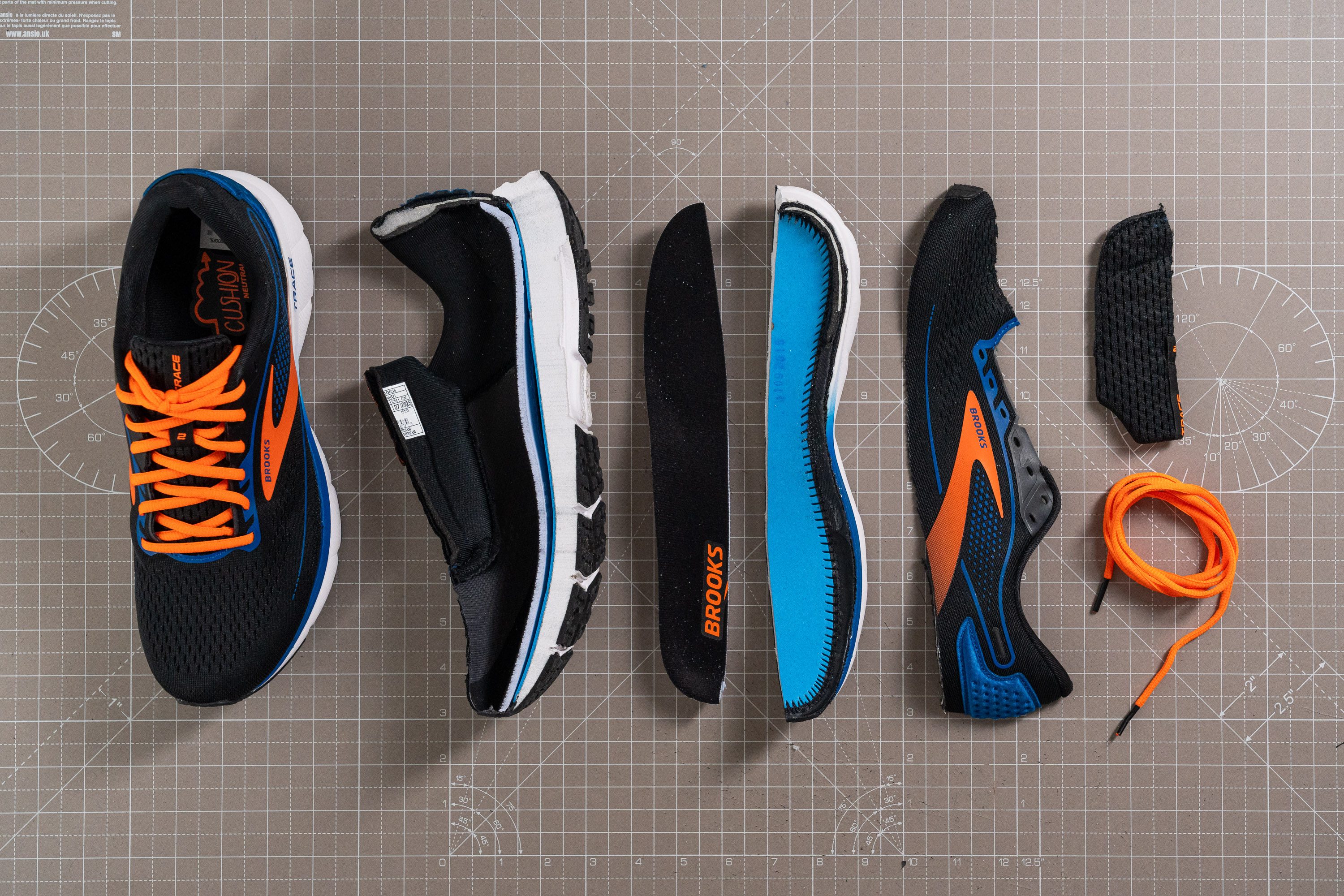
| Trace 2 | Yes |
Midsole softness in cold (%)
To see how the shoe holds up in cold weather, we put it in the freezer for 20 minutes. After letting it rest, we measured the softness again. We found that there was a small increase, going up to 27.4 HA.
With just a 23.8% change, you might think it's just an okay performance for a running shoe. But let's give credit where it's due—this is an amazing result for a wallet-friendly shoe.
Most budget shoes use EVA foam, which tends to get really hard in the cold. However, we discovered that the Trace 2, using a modified EVA, stays impressively consistent, barely changing at all.

| Trace 2 | 24% |
| Average | 24% |
Reflective elements
Sadly, we found that the Trace 2 doesn't have any reflective pieces for better visibility at night.
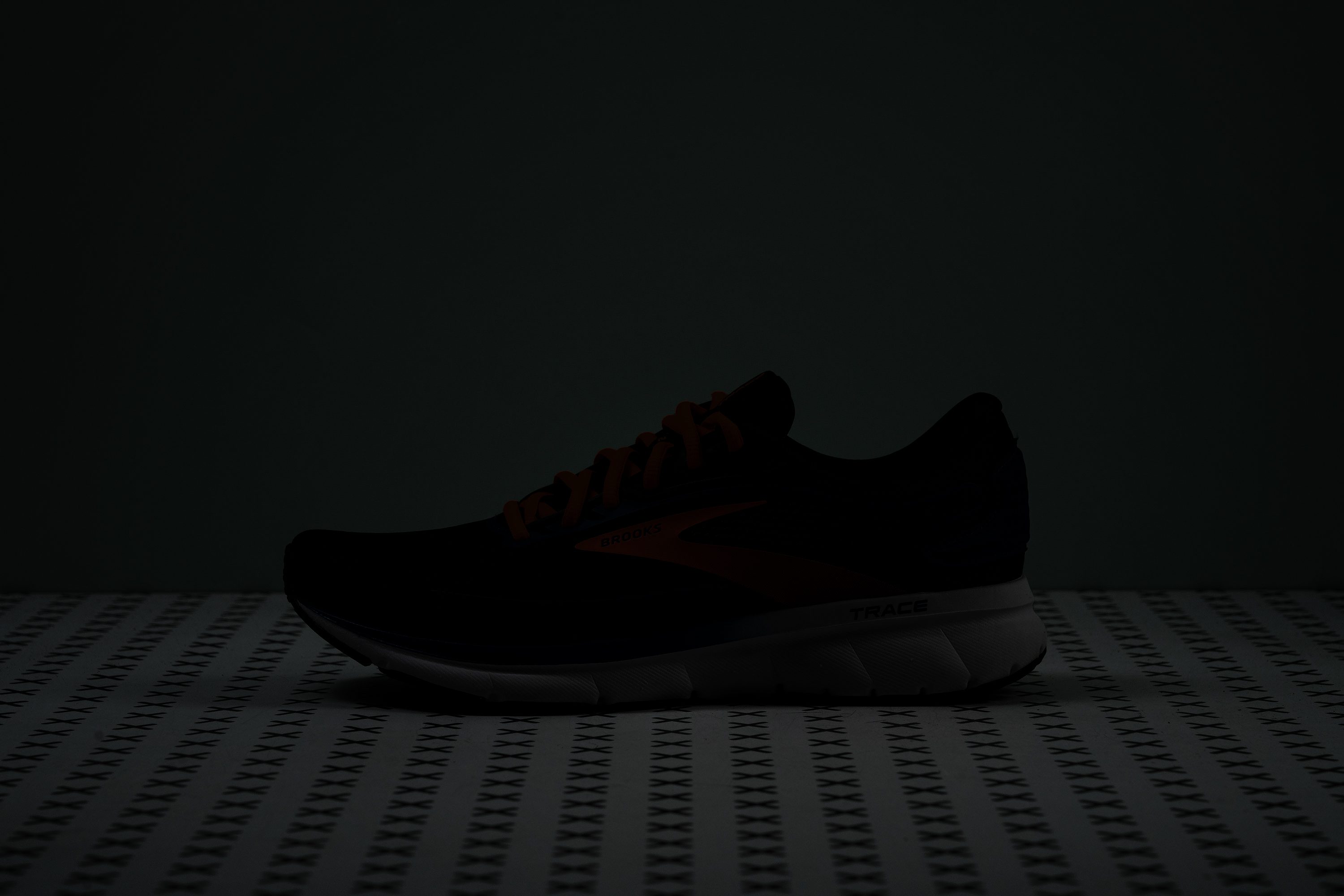
| Trace 2 | No |
Tongue padding
We measured the tongue and found that Brooks really nailed it with this design. The tongue is a just-right 5.3 mm thick, which is enough.
It's so easy for companies to pack in extra padding and talk it up, but too much foam inside the tongue only makes the shoe heavy and bulky!
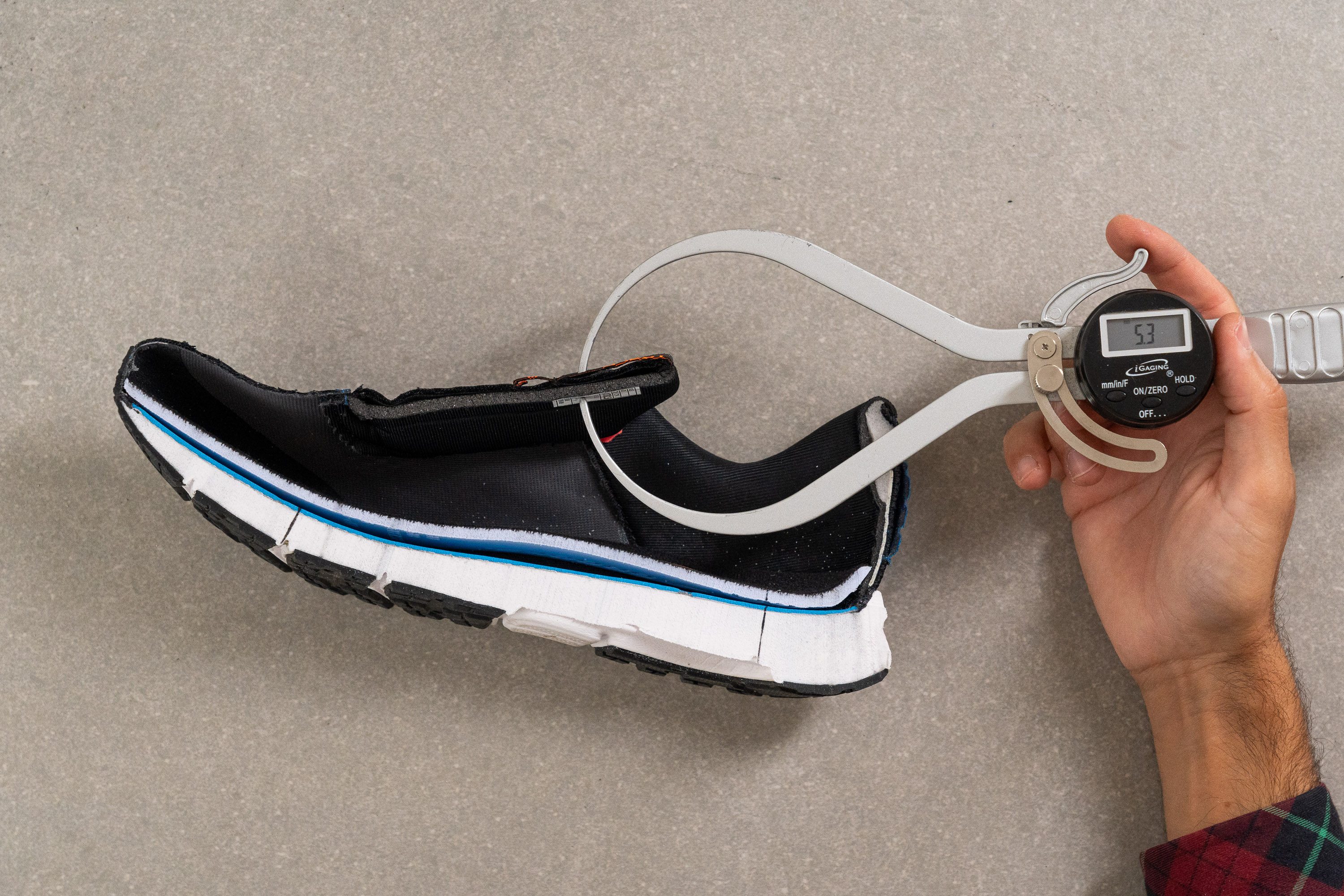
| Trace 2 | 5.3 mm |
| Average | 5.8 mm |
Tongue: gusset type
We discovered in this lab review that this shoe offers many features you'd usually find in more expensive models. However, the tongue isn't one of them.
It has a non-gusseted tongue, which is understandable. Still, it's nice to dream about having it all, isn't it?
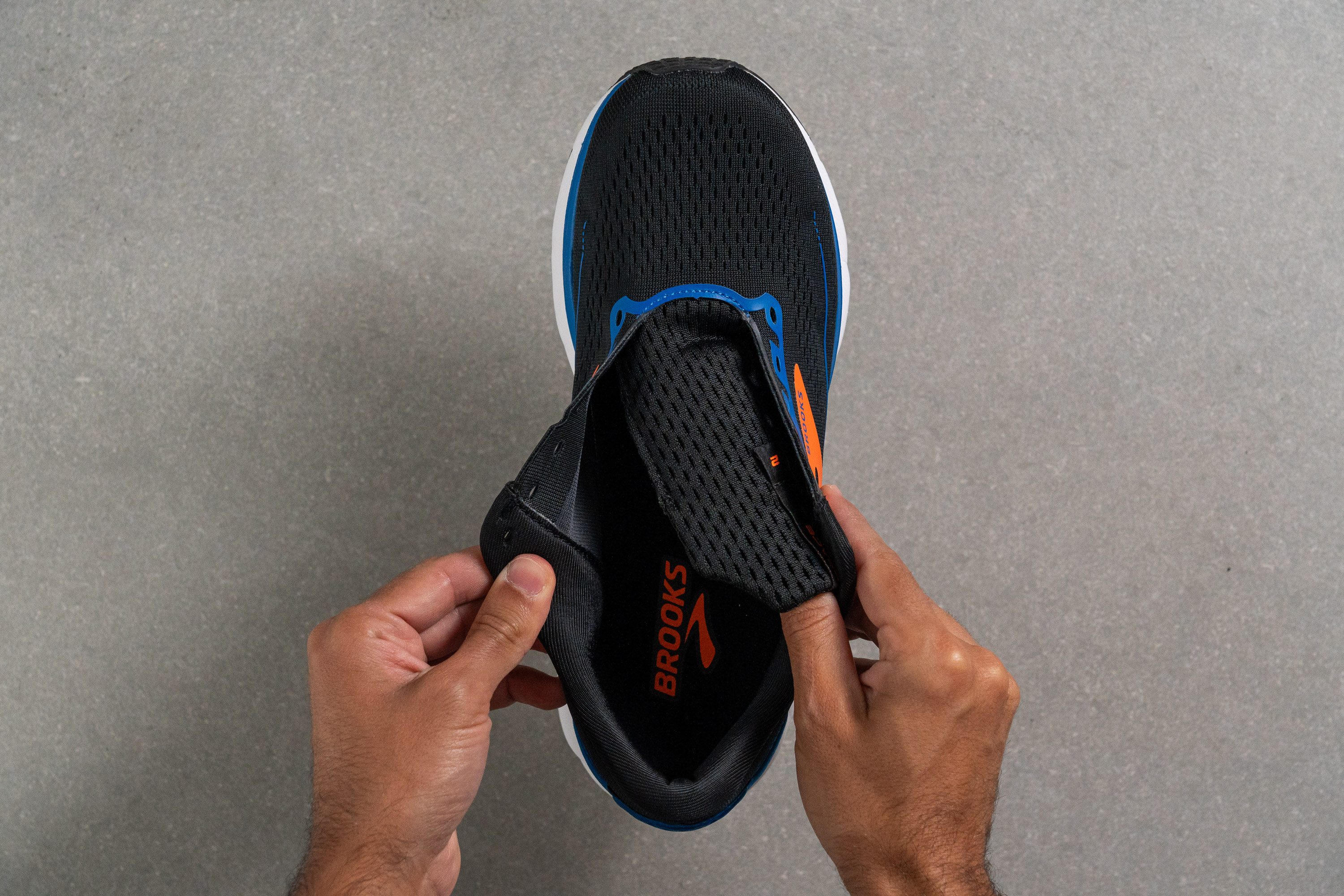
| Trace 2 | None |
Heel tab
We observed that the Trace 2 doesn't have a heel tab, but this isn't because it's an entry-level shoe. Is just the way Brooks is designing their latest shoes.
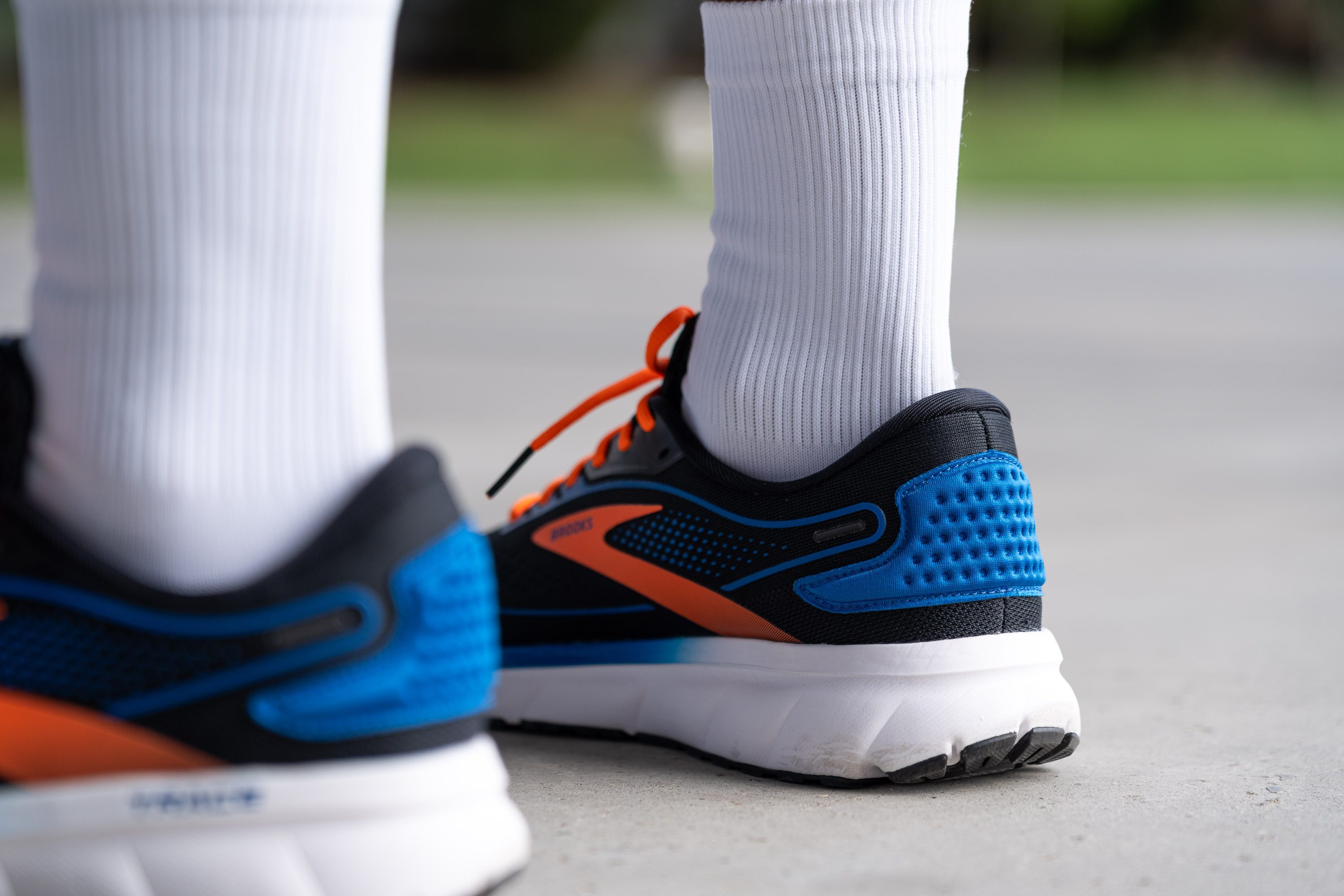
| Trace 2 | None |

